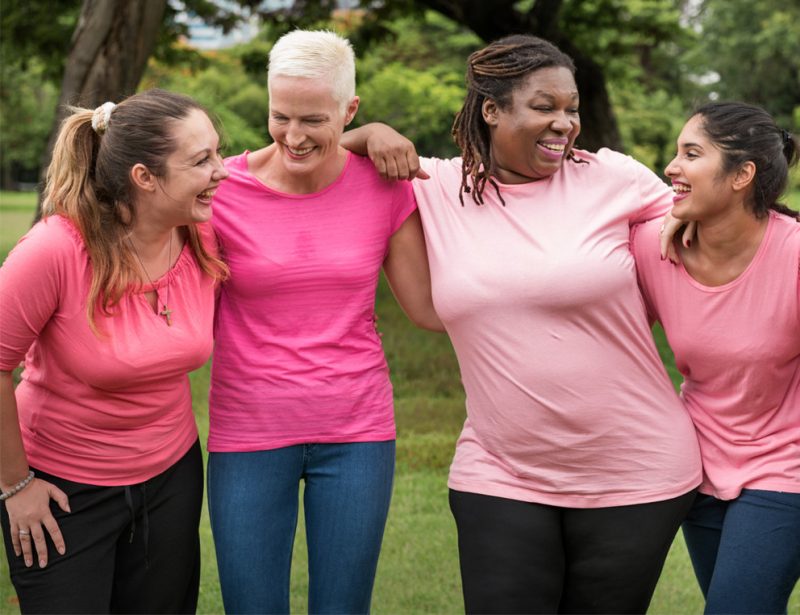It’s bad enough that breast cancer attacks physical health, but it can also take a toll on mental health and overall wellness.
“There are a lot of emotions that arise when you are going through breast cancer treatment,” said Nichole Cook, a breast imaging nurse navigator with Penn State Health. “You’re faced with the initial shock of a diagnosis and then you immediately have to start making treatment decisions, which is extremely overwhelming.”
Cook encourages her patients to allow others to help them, even though that can be difficult for some. She also tells them to take time for themselves. “Pamper yourself a little,” she said. “Journal, go for a walk – whatever it is that helps you deal with your emotions.”
Penn State Cancer Institute offers activities such as art therapy, creative writing and yoga at the University Fitness Center on the Hershey campus. “All of those things can really help your mental wellbeing when you’re going through something like that,” Cook said.
Her experiences working with breast cancer patients have convinced her that women who are able to stay positive seem to heal and return to their normal lives faster than those who remain negative or dwell on their illness.
“You are going to have ups and downs no matter what,” Cook said. “It’s about just knowing what to do when you start to feel down and how to get yourself in a better frame of mind.”
To help promote wellness with these patients, Dr. Michael Hayes, a psychologist at Penn State Health, is organizing a retreat at a bed and breakfast outside Hershey at the end of the month for 10 breast cancer patients and their partners.
Nurse coordinators identified and invited women who would be a good fit for the program.
The weekend will include time for small group discussions among survivors and their partners, as well as larger group conversations. Voluntary activities such as meditation, yoga, massage and reflexology will also be available.
“There is a good body of evidence that shows us that patients with strong and stable relationships and support have better outcomes than those who are alone or isolated socially,” he said. “It’s such a vital dimension of the healing process.”
He said cancer affects not only the person it attacks, but also everyone around that person.
“What is front and center is the disease, and increasingly we are attending to what lies beyond the disease – the whole person, as well,” he said.
Hayes has proposed a hub within the Cancer Institute to integrate care from traditional medical providers with the psychosocial elements of the disease.
“We want to work to wrap our arms around the whole person,” he said. “It’s abundantly clear that when we are taking care of people, we are caring for not just their physical body, but also their mind, spirit and relationships.”
Learn more:
- Ask Us Anything About… Breast Cancer
- The Medical Minute: Information is power for women at high risk of breast cancer
- The Medical Minute: Social interaction can affect breast cancer outcomes
The Medical Minute is a weekly health news feature produced by Penn State Health. Articles feature the expertise of faculty, physicians and staff, and are designed to offer timely, relevant health information of interest to a broad audience.
